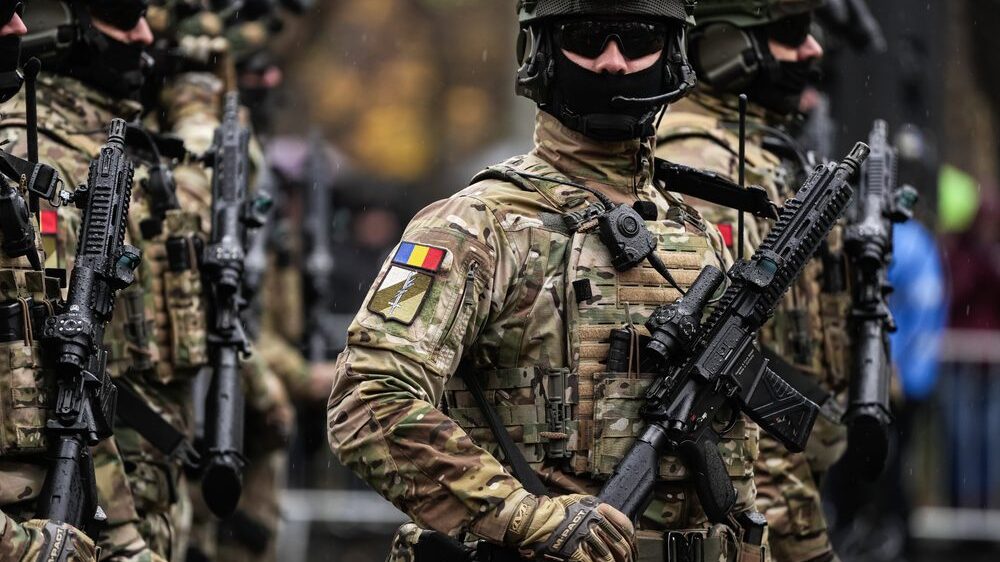
Photo: Dragos Asaftei / Shutterstock.com
Despite keeping it largely secret, Romania has been playing just as much of an important strategic role in assisting Ukraine as Poland, the leaked Pentagon documents revealed. The neighboring country primarily helps in the training of Ukrainian forces, as well as doing transport and reconnaissance missions for NATO, as Spotmedia originally reported.
The leaked documents, consisting of over a hundred pages of classified U.S. military intelligence, have been preoccupying news feeds for the past week, revealing one uncomfortable truth after the other, from the Western military presence on the ground in Ukraine to NATO allies being monitored by the CIA, causing considerable outrage in Europe.
Among the smaller yet still significant revelations, multiple countries—both inside and outside NATO—were shown to have been much more entangled in the war than they previously let their own people know. For example, as we wrote before, the leaked documents clearly show that Serbia has secretly agreed to arm Ukraine, despite Serbian public opinion being rather pro-Russia for various historical reasons; and that Egypt was planning to do the same, only that it would have aided Moscow’s war efforts with 40,000 rockets instead of Kyiv’s, despite being one of the closest allies of the U.S. in the region.
In wake of the leaks, a similar scandal is brewing in Romania, where the government had always been suspiciously evasive when asked about the scale of assistance it provides to Ukraine. Now the Pentagon papers showed why: it’s been secretly playing a “key role” in the strategic and combat training of Ukrainian troops, as well as in the transfer of Western equipment and the monitoring of the front, including via reconnaissance missions flown by at least one piloted aircraft and two UAVs in early March.
The Romanian public, of course, was left in the dark about all of this until now, and officials were explicitly forbidden from providing any such information. The only explanation, given by unnamed political sources wishing to remain anonymous, is that the government “did not want to jeopardize Moldova’s neutrality and expose Chișinău to even more pressure from Moscow.” Indeed, Romania was relatively slow to react back in February as well, when multiple sources revealed that Russia was actively trying to destabilize Moldova. With certain factions in both countries calling for reunification for decades, it is only natural that Bucharest has to tread carefully around Moldovan issues, lest it would display too much enthusiasm for helping Chișinău in the eyes of Moscow.
However, another—more obvious—explanation would be that Bucharest is assisting Ukraine despite the fact that public opinion is divided about such endeavors. Two weeks ago, when Foreign Minister Bogdan Aurescu was asked by the BBC why his government was not communicating the scale of its support to Ukraine, he simply said that Bucharest decided that keeping the numbers secret was the right strategic choice and that Romanians could expect to know more after the war ended. When asked about polls showing that a significant portion of the population rejects assisting Ukraine, Aurescu said he was confident that the majority stands by the government’s decisions.
This secrecy did not start last month; Romanian officials have been refusing to comment on the scale of their military assistance ever since the war started. Just as President Klaus Iohannis did last summer when he said it would be unwise to spill strategic information. “We are at war, not chatting quietly over coffee,” President Iohannis told reporters. “All we can say publicly, is that we are helping Ukraine with everything we can.”
As far as equipment goes, the recent leaks do not mention anything about large-scale Romanian arms shipments, which is not surprising since the Romanian armed forces have no modern equipment either due to the fact that the country has lacked domestic production capabilities for over thirty years.
Regardless, the role that Romania plays (in training, transport, and reconnaissance) according to the leaked documents is still significant, yet has received no official explanation so far, further raising the tensions. After being asked about the leaks, government spokesman Dan Cărbunaru simply said: “We do not comment on press speculation.”
